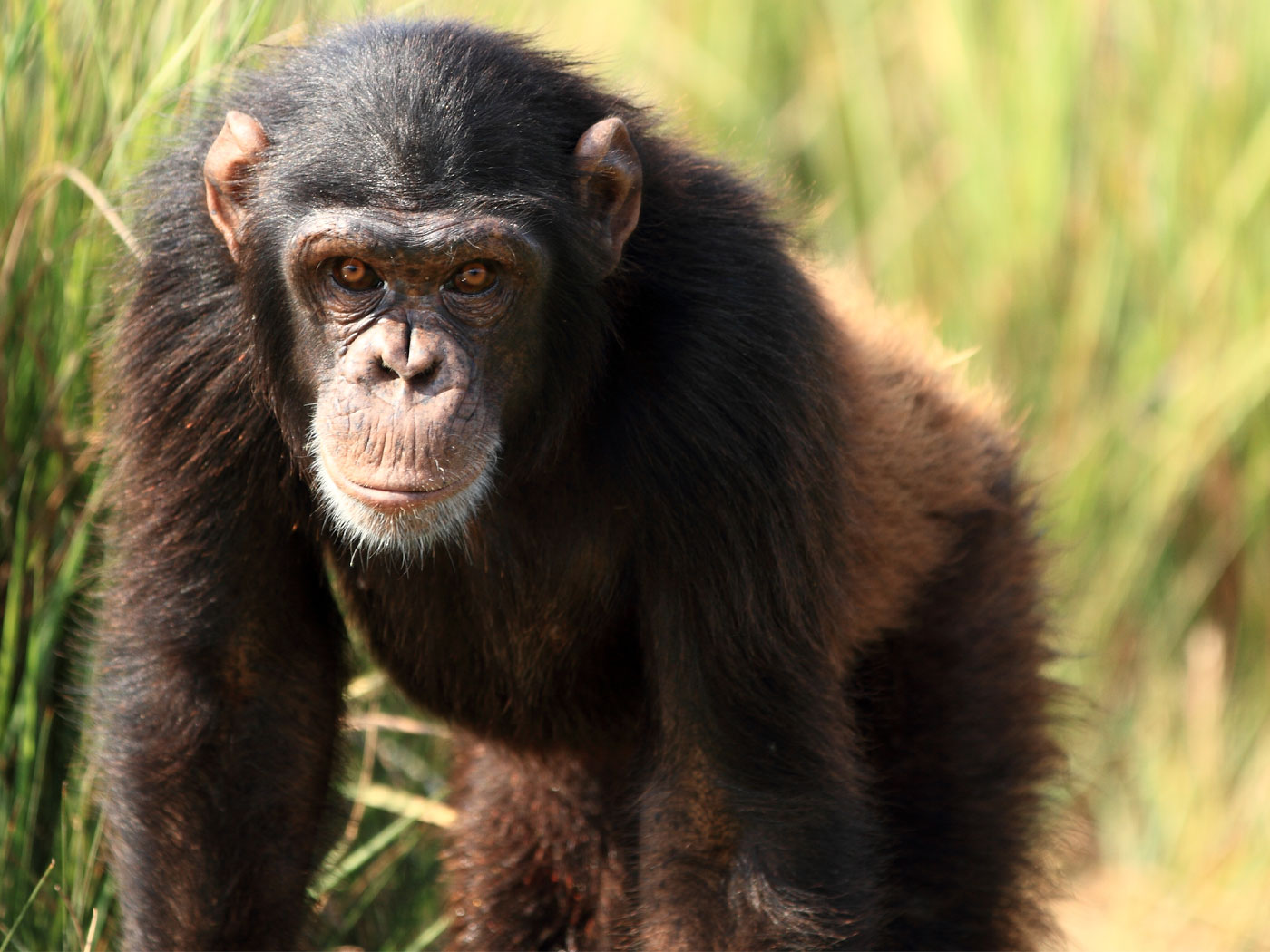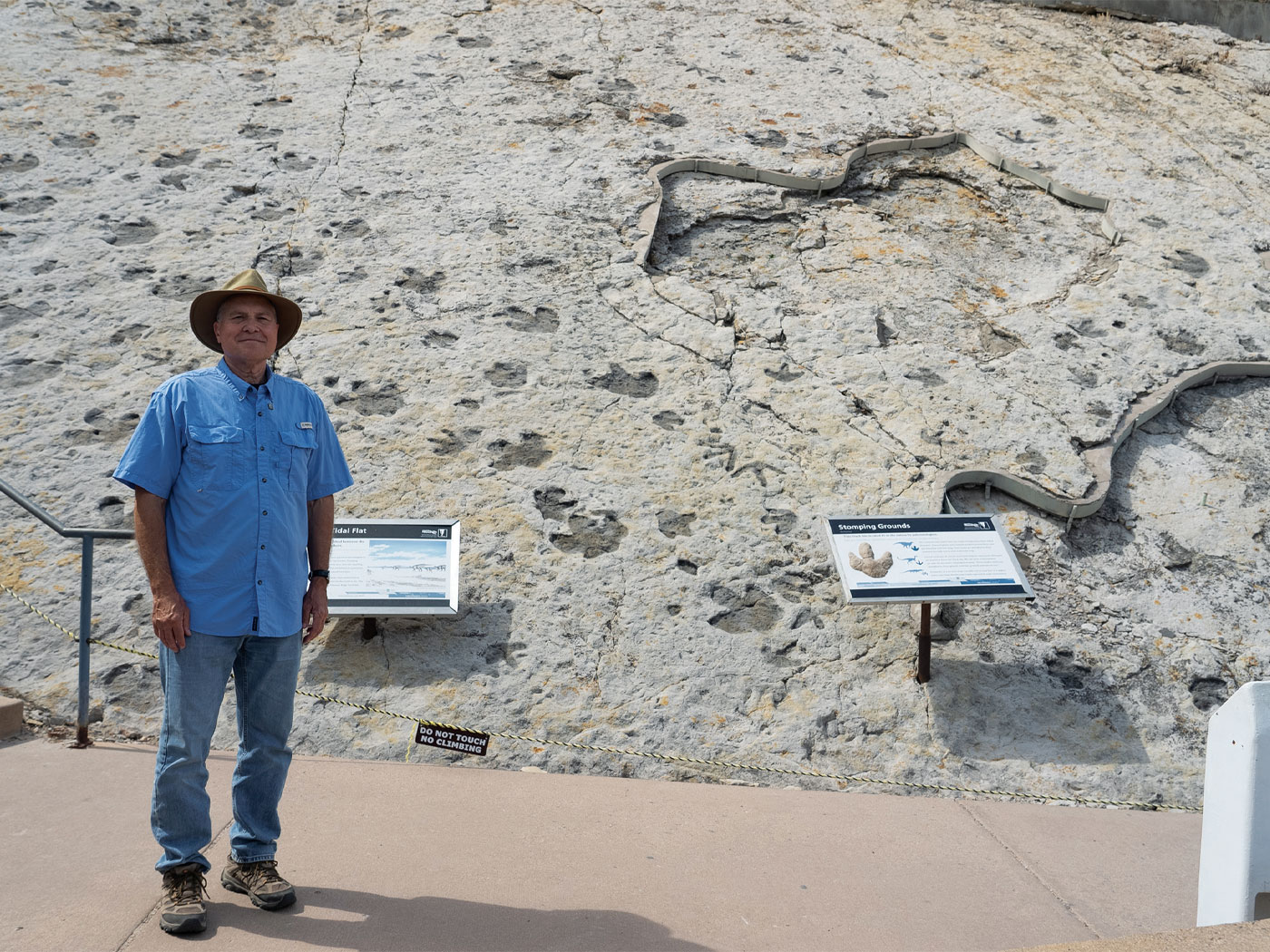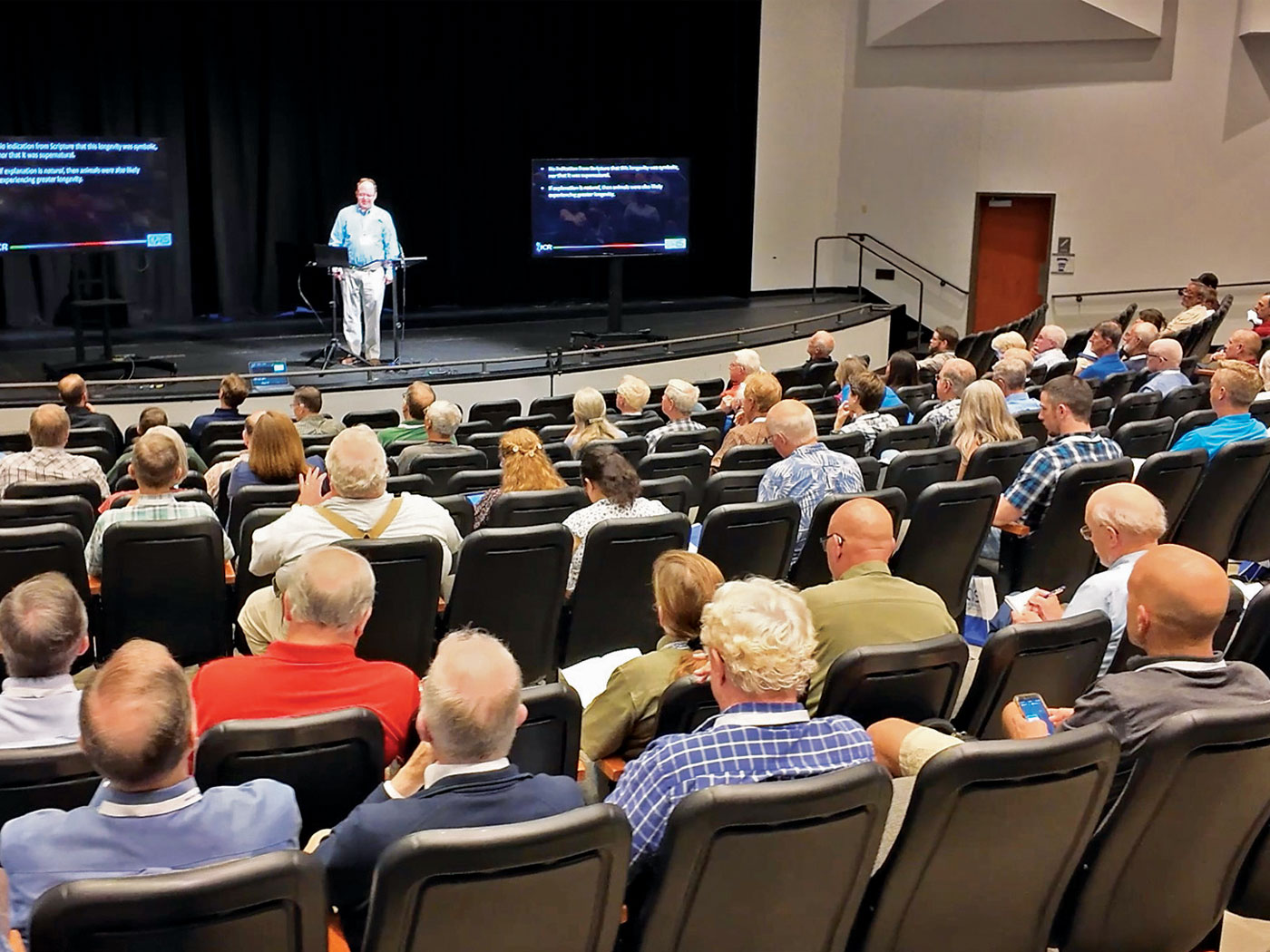The modern theory of evolution, commonly known as the neo-Darwinian theory of evolution, and sometimes referred to as the synthetic theory, since it purports to be a synthesis of modern scientific knowledge rooted in classical Darwinism, has been set forth during the past few decades by leading evolutionary theorists, such as R.A. Fisher,1 George Gaylord Simpson,2,4 Theodosius Dobzhansky,5,6 Ernst Mayr,7 G. Ledyard Stebbins,8 and Sir Julian Huxley.9 This modified form of the Darwinian theory of evolution has never been unanimously accepted by evolutionists, but nevertheless has been so widely accepted that Mayr, with reference to the many symposia held to mark the one hundredth anniversary in 1959 of the publication of Darwin's Origin of Species, said " ... we are almost startled at the complete unanimity in the interpretation of evolution presented by the participants. Nothing could show more clearly how internally consistent and firmly established the synthetic theory is."10
But even at that time there were some evolutionists who were beginning to express doubts concerning this formulation of evolution theory. A decade later, these incipient cracks have widened to the point that some, formerly strongly committed to this theory, are now expressing disillusionment.
Recently, for example, Pierre P. Grassé, one of the most distinguished of all French scientists, published a book, L’Evolution du Vivant,11 which constituted a strong attack on all aspects of modern evolution theory.
Dobzhansky, in his review of this book, states "the book of Pierre P. Grassé is a frontal attack on all kinds of ‘Darwinism.’ Its purpose is ‘to destroy the myth of evolution as a simple understood and explained phenomenon,’ and to show that evolution is a mystery about which little is and perhaps can be, known. Now, one can disagree with Grassé, but not ignore him. He is the editor of the 28 volumes of ‘Traite de Zoologie,’ author of numerous original investigations, and ex-president of the Academie des Sciences. His knowledge of the living world is encyclopedic." The closing sentence of Grassé’s books is most interesting (and disturbing to Dobzhansky). In that sentence Grassé says, "It is possible that in this domain biology, impotent, yields the floor to metaphysics."
Thus, this "most distinguished of all French zoologists" (not some obscure French scientist), vigorously attacks "all kinds of Darwinism," and states that in the domain of origins, the science of biology can supply no answers, and that it must therefore yield to metaphysics, or a supernatural explanation for the origin of living things.
The neo-Darwinian theory is based on two basic assumptions. These are that all heritable variations may be ascribed to random or chance mutations, and that there is natural selection for fitness. Furthermore, there has been a redefinition of fitness. Darwin envisioned a struggle for existence in which those that survived this struggle ("red in tooth and claw" according to Thomas Huxley) were deemed to be the fittest. Today, evolutionists, such as Lewontin, sternly admonish that the term "struggle for existence" must be banished from evolutionary literature,13 and he, and others, are now defining fitness in terms of differential reproduction.13, 14
That is, those that are the fittest, and thus selected in a Darwinian sense, are defined as those that reproduce in larger numbers. In fact, Lewontin, flatly states that "Natural selection is differential reproduction."13 This leaves unstated why some organisms reproduce in larger numbers than others, they just do.
The concept of natural selection, actually not original with Darwin, but nevertheless popularized by him in his 1859 publication, The Origin of Species by Natural Selection or the Survival of Favored Races, known since simply as The Origin of Species, has for over a century been held in almost religious reverence by Darwinists. It seemed to explain so much, and was in fact responsible for the rapid acceptance of evolution theory by the majority of scientists.
Creationists have long maintained that the Darwinian concept of natural selection (and now the neo-Darwinian concept) as a force which enables chance variations or mutations of the genetic material to produce an increase in complexity and to change one basic kind of organism into another, is not only a tautology (that is, a product of circular reasoning and vacuous in explanatory content), but that it is also incapable of either test or proof. The classical Darwinian concept of natural selection was tautological because those that survived were said to be fittest, while the fittest were defined as those that survived. In neo-Darwinian terms it is said that those that reproduce in larger numbers are the fittest, while the fittest are defined as those that reproduce in larger numbers.
That neo-Darwinism is a theory that is no more testable than is creation, and thus no more scientific, is being recognized. Paul Erhlich and L.C. Birch, biologists at Stanford University and Sydney University, respectively, state:
"Our theory of evolution has become...one which cannot be refuted by any possible observations. Every conceivable observation can be fitted into it. It is thus ‘outside of empirical science’ but not necessarily false. No one can think of ways in which to test it. Ideas, either without basis or based on a few laboratory experiments carried out in extremely simplified systems have attained currency far beyond their validity. They have become part of an evolutionary dogma accepted by most of us as part of our training."15
Even more recently, C. Leon Harris, has published an article in which he states that the neo-Darwinian theory of evolution is axiomatic (axioms are assumptions which can be neither tested nor proved). In his conclusion to this article Harris states:
"I have suggested that the neo-Darwinian theory of evolution rests on the axioms that all heritable variations in fitness result from chance mutations and that there is natural selection for fitness. There are several consequences for evolution and for biology in general.
"First, the axiomatic nature of the neo-Darwinian theory places the debate between evolutionists and creationists in a new perspective. Evolutionists have often challenged creationists to provide experimental proof that species have been fashioned de novo. Creationists have often demanded that evolutionists show how chance mutations can lead to adaptability, or to explain why natural selection has favored some species but not others with special adaptations, or why natural selection allows apparently detrimental organs to persist. We may now recognize that neither challenge is fair. If the neo-Darwinian theory is axiomatic, it is not valid for creationists to demand proof of the axioms, and it is not valid for evolutionists to dismiss special creation as unproved so long as it is stated as an axiom."16
Harris, strongly committed to evolutionary theory and philosophy, thus denies the usual claim of evolutionists that creation is mere religious dogma while evolution is a scientifically testable theory.
Some years ago the British geneticist and mathematician, R.A. Fisher, gave great comfort to neo-Darwinists with his elegant mathematical treatment of evolution theory and population genetics. While all this looked so wonderfully scientific and convincing, Waddington, a well-known British biologist and evolutionist, had this to say about this mathematical treatment:
"The theory of neo-Darwinism is a theory of the evolution of the population in respect to leaving offspring and not in respect to anything else ... Everybody has it in the back of his mind that the animals that leave the largest number of offspring are going to be those best adapted also for eating peculiar vegetation or something of this sort, but this is not explicit in the theory... There you do come to what is, in effect, a vacuous statement: Natural selection is that some things leave more offspring than others: and it is those that leave more offspring, and there is nothing more to it than that. The whole real guts of evolution -- which is how do you come to have horses and tigers and things -- is outside the mathematical theory."17
Thus, Waddington not only admits that the most highly cherished concept of neo-Darwinism, natural selection, is vacuous, but also that the attention and research of evolutionists have all been focused on intrapopulational studies. These are merely attempts, as Waddington points out, to explain why some tigers and horses become more numerous. but does not even attempt to explain how horses and tigers arose in the first place. The same objections to the neo-Darwinian theory of evolution have been eloquently expressed by Marjorie Grene, one of the world's leading philosophers of science.18
Grene was expressing her doubts even at the same time Mayr was declaring that unanimity among evolutionists in accepting the neo-Darwinian theory was so startling. Concerning the possibility of the evolution of the horse via random mutations and natural selection, she said (p. 50):
"In other words, if horses have evolved -- and few are those who would like to deny it -- and if an explanation of this transformation through random mutations alone is excessively unlikely -- as indeed it seems to be, since the great majority of mutations so far observed are adverse or even lethal -- then it must be the automatic selection in each generation, of very slightly advantageous variants that has built up the otherwise astonishing result.
But how, one may ask, do we know this? If mutation alone cannot explain the evolutionary process -- the origin of life, of sentient life, of intelligent life -- why is natural selection -- the elimination of the worst mutations, a negative and external agency -- the only conceivable alternative?"
Later (p. 52) she had this to say about the shift in populations of varieties of peppered moths in England from a population in which the light-colored variety was predominant to a population in which the dark-colored variety was predominant,
" ... the recent work of H.B.D. Kettlewell on industrial melanism has certainly confirmed the hypothesis that natural selection takes place in nature. This is the story of the black mutant of the common peppered moth which, as Kettlewell has shown with beautiful precision, increases in numbers in the vicinity of industrial centres and decreases, being more easily exposed to predators, in rural areas. Here, say the neo-Darwinians, is natural selection, that is, evolution, actually going on. But to this we may answer: selection, yes; the colour of moths or snails or mice is clearly controlled by visibility to predators; but 'evolution'? Do these observations explain how in the first place there came to be any moths or snails or mice at all? By what right are we to extrapolate the pattern by which colour or other such superficial characters are governed to the origin of species, let alone of classes, orders, phyla of living organisms?"
In the concluding portion of this two-part series, we will document challenges to the modern neo-Darwinian theory of evolution by mutations and natural selection from evolutionists during the past decade.
References
1 R.A. Fisher, The Genetical Theory of Natural Selection, Clarendon Press, Oxford, 1930.
2 G. G. Simpson, Tempo and Mode in Evolution, Columbia University Press, New York, 1944.
3 G.G. Simpson, The Meaning of Evolution, Yale University Press, New Haven, 1949.
4 G.G. Simpson, The Major Features of Evolution, Columbia University Press, New York, 1953.
5 T. Dobzhansky, Genetics and the 0rigin of Species, 3rd Ed., Columbia University Press, New York, 1951.
6 T. Dobzhansky, Mankind Evolving, Yale University Press, New Haven, 1962.
7 E. Mayr, Animal Species and Evolution, Belknap Press of Harvard University Press, Cambridge, 1966.
8 G. Ledyard Stebbins, Processes of Organic Evolution, 2nd Ed., Prentice-Hall Inc., Englewood Cliffs, N.J. 1971.
9 J. Huxley, Evolution, the Modern Synthesis, Allen and Univin, London, 1942.
10 Ref. 7, p. 8.
11 P. Grassé, L’Evolution du Vivant, Editions Albin Michel, Paris, 1973.
12 T. Dobzhansky, "Darwinian or 'Oriented' Evolution," Evolution, Vol. 29, pp. 376-378 (1975).
13 R.C. Lewontin, "Selection in and of Populations," in Ideas in Modern Biology, Natural History Press, Garden City, N.Y., 1965, p. 304.
14 G.G. Simpson and W.S. Beck, Life, an Introduction to Biology, 2nd Ed., Harcourt, Brace and World, Inc., New York, 1965, p. 438.
15 P. Ehrlich and L.C. Birch, "Evolutionary History and Population Biology," Nature, Vol. 214, p. 352 (1967).
16 C. Leon Harris, "An Axiomatic Interpretation of the Neo-Darwinian Theory of Evolution," Perspectives in Biology and Medicine, Winter 1975, p. 179-184.
17 Quoted by Tom Bethell in "Darwin's Mistake," Harper's Magazine, February 1976, p. 75.
18 Marjorie Grene, "The Faith of Darwinism," Encounter, November 1959, pp. 48-56.*Dr. Gish is Vice President of ICR.



















